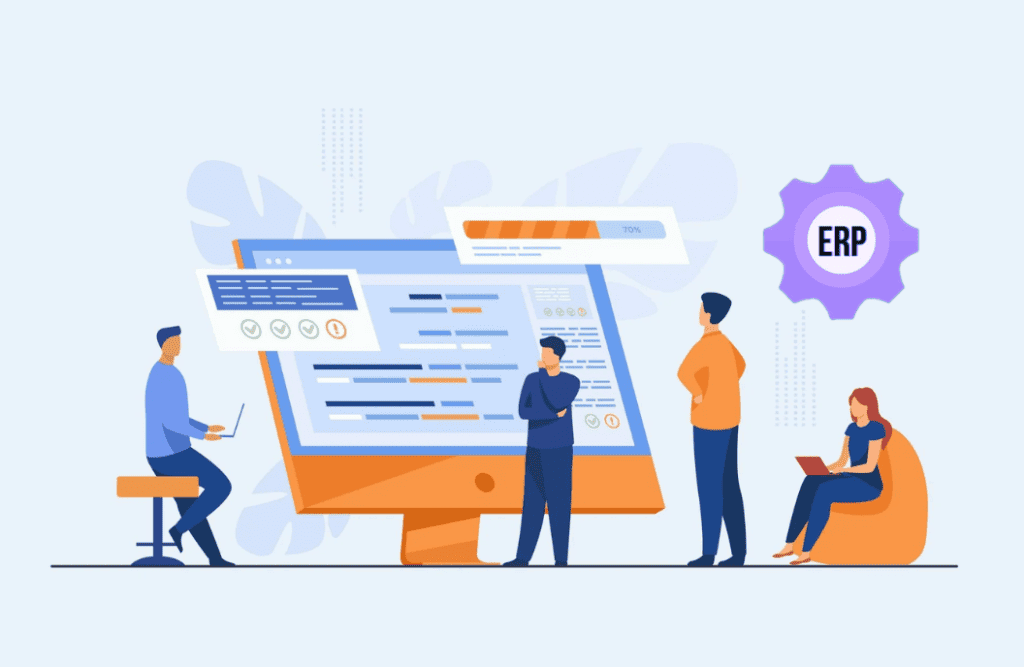Achieving profitability for your company is a big challenge. The first years of most businesses struggle to reach this benchmark, and once they do, the goal is to maintain that growth and continue it. What owners and executives need for their companies to be successful is the right set of tools to meet short and long-term objectives.
In 2023, many of the tools you might need are software programs. The Internet makes it far easier for businesses to have improved communication and more efficient operations so that the use of resources is maximized.

In particular, an enterprise resource planning (ERP) system can make a world of difference in how your company performs. Let’s dive into a few reasons why an ERP platform can make your job easier and your employees more productive.
Automation
Automation is one of the biggest buzzwords in the business world right now. No company wants to waste their employees’ time by bogging them down with busy work and manual tasks. At least, no company that wants to be successful is doing that. An ERP system can make automation a staple of your company’s operations.
Everything from data collection to customer relationship tracking to marketing initiatives can be automated with the help of an ERP program, preventing your team from spending much of their time on repetitive tasks that are necessary but time-consuming.
Workflow Clarity
Managing projects and tasks on an individual level may be simple, but once other parties are involved, things tend to become a little more complicated. One of your team members may be waiting to start one aspect of a project because another team member has to complete their task first.
With ERP systems, workflows can be visible to all. That means everyone is on the same page with the status of various projects so they know when and how they need to be involved. This can speed up the project process, allow people to focus on singular tasks to get them done more effectively and smooth out the communication process of the project lifecycle.
Data Security
An ERP can track every transaction, data transfer, and access point that is connected to the software. That means it is easier to collect data, find it, use it, and protect it. This is a crucial responsibility that businesses have, especially when dealing with the personal information of customers.
ERP systems are set up well for cybersecurity practices that defend the business against malware, phishing, data breaches, and even insider threats. When you pair your ERP software with cybersecurity assistance and other GSI services from a firm like getGSI, your business data and customer information can be better protected, increasing trust in your brand.
Collaboration
Every business that has more than one person involved relies on collaboration to succeed. Setting up practices within your organization that foster a collaborative environment will make it easier for your team members to get important projects done. One thing that can easily hold up progress is a lack of collaboration, and ERP systems can change that.
First, everyone can view workflows so they understand their roles. Second, everyone can access the data they need in real time to complete their assigned tasks. Third, the walls between departments are knocked down, streamlining communication that ensures projects are not held up by miscommunication.
Scalability
Every business owner wants their brand to grow. When you do not take advantage of technologies like an ERP system, it requires more work to prepare the company for growth. Since an ERP system is often cloud-based, it is a very simple step to scale up the capacity of the program you are using.
It may be as simple as paying for more computing capacity on a third-party server network. Relying on individual programs that are not connected via ERP will mean you have to spend time upgrading everyone’s hardware to make space for new programs.
Meanwhile, businesses taking advantage of an ERP system can scale up very quickly without having to take additional, time-consuming steps.
An ERP Program Can Save You Time and Money
A more efficient organization maximizes the use of its resources by cutting down on waste. Waste could be the manual tasks that team members work on every day that could be automated. Waste is when a project is held up by someone not responding to an email.
Waste is having to take time to upgrade everyone’s computers to make room for a new program that can handle increasing business needs as the company grows. When you invest in an ERP system, you can cut out many of these wasteful practices.
You will save time, money, and human energy in the process. Consider the benefits of ERP and consider how it can shift the future of your organization in a positive direction.
You may also be interested in checking out:
- Top 11 Best Accounting Software for Small Business
- Why Outsourcing May Be the Answer to Saving Money in Your Business
- How Email Marketing Can Benefit E-commerce Business?
- How to Find the Best Conference Calling System for Your Business